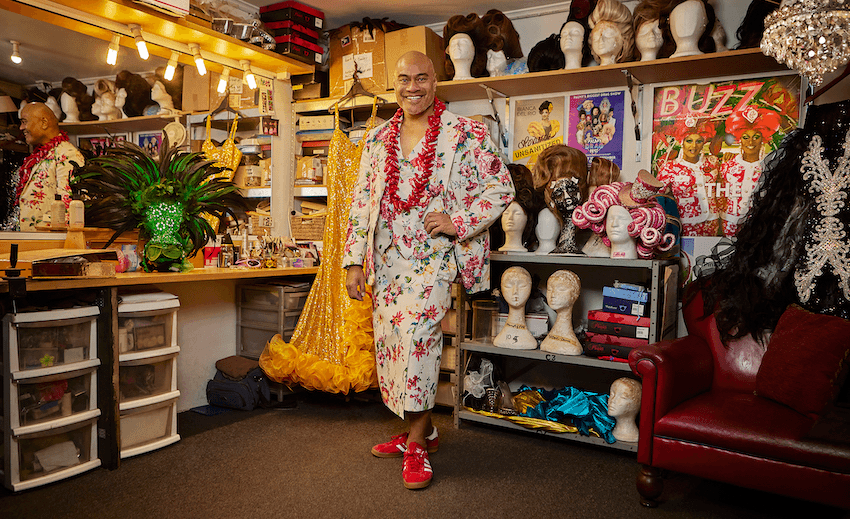As a transport and urban planning professional, I hear my fair share of theories about what would improve our cities and roads. But these ‘solutions’ tend to overlook the fact that cities are complex ecosystems.
I grew up in the 1990s and, like most 90s kids, I was addicted to The Simpsons. In one glorious episode, Homer discovered his long-lost half-brother Herbert, a successful car-maker. Having instructed the hapless Homer to design the car for the “average American”, a star-studded launch reveals an $82,000 monstrosity in lurid lime green, with bubble domes, tail fins and three horns that play ‘La Cucaracha’. Predictably, this fiasco ruins Herbert, bankrupting his company.
This isn’t the only Simpsons storyline to lampoon the adulation of amateur designers. In a well-known episode, a $3m windfall is almost spent on rehabilitating Springfield’s dilapidated Main Street but at the last moment, public opinion is swung by straw-hatted spiv Lyle Lanley and his Springfield Monorail! Captivated by Lanley’s salesmanship, Springfield’s citizens waste $3m on a shoddy monorail which fails on the first run.
Both episodes hinge on the premise that people love to opine on cars and urban transport, thinking themselves well qualified by experience.
Every time we leave our homes, we interact with the built environment. Our perspective reflects everyday familiarity, synthesised with a rich variety of professional and personal biases. As a transport-and-urban-planning professional, this is apparent in conversations about what I do for a living, which will often lead to “helpful” suggestions from personal perspectives.
Recently a mechatronics engineer opined to me that Auckland “needs” self-driving cars to “solve traffic jams”. Self-driving technology is jolly clever stuff, but at the end of the day, traffic is still traffic. If you work in mechatronics, every problem looks like something to solve with automation, sensors and software.
In a similar conversation, a thoughtful North Shore techbro waxed lyrically to me about the need for a new ferry service from Browns Bay to Auckland’s city centre. A detailed examination of the costs, specifications, operational requirements, and service patterns of coastal ferries did not follow; the answer was to “use tech.” Details of said tech remains unspecified. Semiconductors will never obviate the fact that ferries are affected by sea conditions and tend to be accessed from piers, at the end of peninsulas. This limits the number of people within walking distance.
More tangibly, a self-building homeowner expertly diagnosed for me the source of New Zealand’s entire housing crisis. Nothing to do with infrastructure investment, money supply, demographics or transportation. No, it’s solely down to the high price of Gib board, apparently.
These opinions are at least meant to be progressive and are far preferable to aggressive revanchism. Deep suspicion exists around international developments that have been proven to work. “Reject overseas precedents” we are told; “New Zealand’s urban conditions are completely unique”. This is untrue as I’ve written previously.
Some suggestions are just weird. A retired teacher in suburban Auckland proclaimed to me that on-street parking is basically a human right. Reader, it isn’t – check the relevant UN Declaration.
But, while most of these takes represent nuance and reflection worthy of Homer Simpson, they give me a weird succour; I can take heart from the fact that what I do professionally is of interest to other people.
At the same time, I envy people who make their living as chartered accountants. I bet no one ever “jobsplains” to an accountant. Or to doctors, insurance adjusters, mechanics…
Perhaps the biggest indication of people’s engagement with cities and transport comes from the virtual world of computer games. SimCity, which pioneered the city-building genre, was successful for decades. The inherently urban Grand Theft Auto is by many measures the most successful video game franchise in history. Both of these emerged from game designers who, first and foremost, enjoyed building cities and transport systems, and were sufficiently engaged with the topic to do it well and consistently.
In the real world, no one person can ever truly claim to have “the answer” to city planning. Cities are complex ecosystems; the product of billions of human interactions. If you’re genuinely interested in better cities, read around the topic from reliable sources that have a proven track record of knowing what they are talking about.
For a New Zealand perspective, read Greater Auckland, Todd Niall on Stuff and Simon Wilson of the NZ Herald. Internationally, the Financial Times and The Economist are both very good. For a transport planning professional perspective, read Jarrett Walker. There are many more sources, so look around, but be selective. Avoid fly-by-night “experts” that make their living from clickbait, manufacturing controversy, representing shady interests, and/or selling a particular technology. Chances are they’re uninterested in facts.
Public opinion is most useful when it’s well-informed. If we want to have sensible conversations about urban planning, we need to be prepared to understand it. Cities are best when people understand, beyond the confines of their own professional perspective, what makes them tick.



